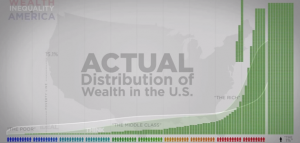If you haven’t spent 500 days in a cave and out of touch with society, you know that Artificial Intelligence (AI) has taken over social media and blogs.
Navigating LinkedIn or Instagram, you’ll likely find posts with countless prompts or extensive lists of essential AI tools.
But AI makes content creators apprehensive. After all, is it possible to replace these professionals and create content only through tools that create texts, images and videos?
Does artificial intelligence create content?
Professionals and brands now use generative AI tools for creating content, whether it’s a blog post, video, or ebook.
They enable quicker research, drafting, extracting new arguments, suggesting titles, and converting audio to text and vice versa. The possibilities are endless.
However, AI is just another option in the toolbox of those who know what goals they want to achieve through content marketing. Quite an option, which can make the process more efficient when used well.
But AI is just a tool. As smart as they are, these features don’t master the nuances of language and the human condition. Therefore, they are not capable of producing quality content by themselves.
When it comes to content creation, the human being continues to be necessary from beginning to end in this process.
Errors, generic texts and ethical issues
Conversational tools based on Generative Artificial Intelligence, such as ChatGPT, have already presented errors and inconsistencies. Not infrequently, these tools deliver distorted information, untrue facts and even demonstrate inappropriate behavior.
Large Language Models (LLM) train generative AIs on thousands of pieces of information, whether it’s text, image, voice, or structured data. To deliver results that make sense, they are able to search for references, analyze contexts and connect information. But is this enough to replace human labor?
Machines create surprising texts, unlike content crafted by marketers, which may disappoint due to a lack of depth and originality.
What generative AIs deliver is a minimally coherent result, based on the information used to train it. And here another problem arises, this time related to its ethical use.
If an AI uses works by an illustrator to generate its own art, would it be practicing plagiarism? Generative AIs often train on copyrighted content. The controversy intensifies when considering commercial use of the results of this process.
Tools like Adobe’s Firefly already promise to generate images based only on free content, but this is still a discussion that should gain new chapters in the coming months.
Artificial Intelligence as a tool
Technology will continue to evolve and bring countless possibilities for content creation and other marketing activities. But you need to be strategic and understand the pros and cons of using it.
Technology will continue to evolve, presenting numerous possibilities for content creation and marketing activities. However, strategic understanding is essential to navigate the pros and cons.
In this landscape, companies leveraging AI-generated content may compromise quality for generic material, risking negative impacts on strategy, brand image, and positioning.

Recognizing the modern consumer’s demands for personalized and valuable content, WriterAccess seamlessly integrates AI efficiency with human creativity. With over 15,000 talented freelancers, our AI-powered tools elevate content creation, offering comprehensive insights, generating engaging ideas, optimizing SEO strategies, and ensuring originality.
Explore the synergy of AI and human creativity with WriterAccess—your gateway to enhanced content operations.









